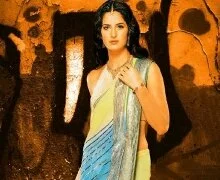Muslim advocates create forum to fight injustice
MUMBAI: Over 300 Muslim advocates from across the state joined hands on Friday to create a forum to stridently fight cases of “injustice” done to the members of community. At a well-attended meet, with participants coming from different districts and talukas of the state, the Muslim advocates resolved to stay united and plead for the rights of minorities as guaranteed in the constitution.
The mood in the spacious Karimi Library’s hall of Anjuman-e-Islam near CST was electric with dozens of young advocates listening with rapt attention to senior legal luminaries, even as the speakers quoted the Quran, Urdu poetry and the minority rights copiously. Two former judges of Bombay high court, Justice Bilal Nazki and Justice Shafi Parkar, were also present. distributed gyaan.
Senior advocates like Saeed Akhtar pressed the need for unity among Muslim advocates. “We must stay united if we want to become an influential force,” said Akhtar, who didn’t find it odd to be associated with an exclusive forum of Muslim advocates. “Advocates can have multiple affiliations and I know many of my non-Muslim colleagues who are members of organizations set up by their respective castes and religions,” added Akhtar.
Many advocates sympathized with the accused of Malegaon 2006 blasts currently languishing in jail despite Swami Aseemanand’s confession that several blasts across India, including those at a Muslim cemetery in Malegaon in 2006, were carried out by activists of Hindutva organizations.
Giving the reason why an exclusive forum of Muslim advocates was needed, advocate Abdul Kalam from Thane said: “After the communal riots, it has been found that Hindu advocates are reluctant to fight cases of Muslim victims or accused. We don’t say that all non-Muslim advocates are biased, but during moments of crisis, many upright advocates have developed cold feet.”
Dr Zaheer Kazi, president of Anjuman-e-Islam, reminded the congregation of the need to be aware of several latches in the recent bills like Right to Education Bill and New Direct Tax Code Bill which will soon be turned into laws. “The New Direct Tax Code Bill has some sections which will harm the interest of minority-run institutions. The institutions which run on donations will be unnecessarily taxed heavily. Muslim advocates must be aware of these shortcomings in the bills and fight to get them removed before they become laws,” said Kazi. The conclave formed an ad hoc committee which will choose the office bearers of the Muslim advocates’ Forum.
